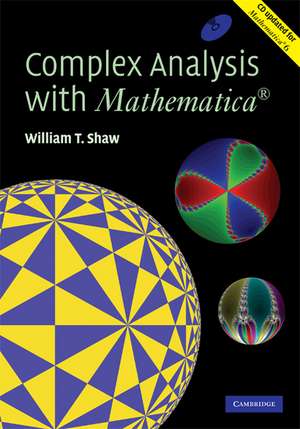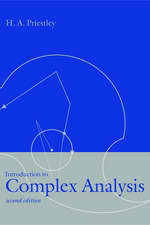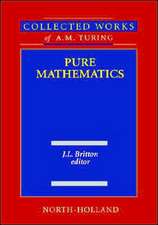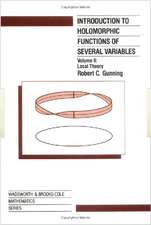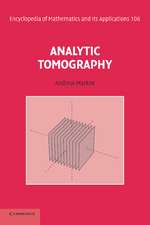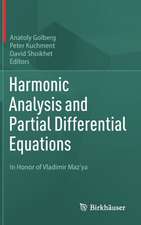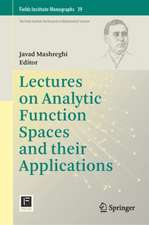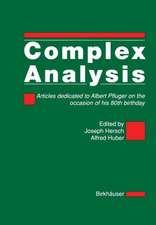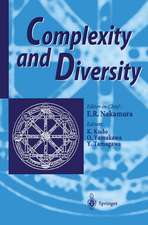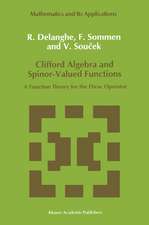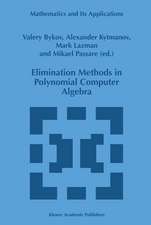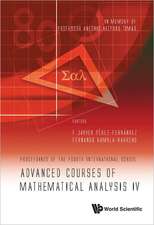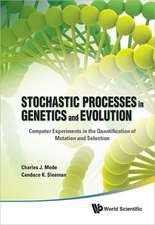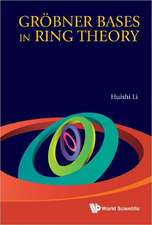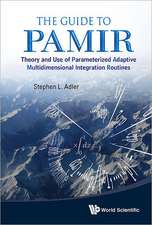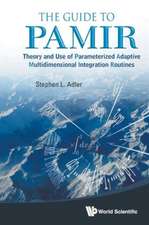Complex Analysis with MATHEMATICA®
Autor William T. Shawen Limba Engleză Hardback – 19 apr 2006
Preț: 713.88 lei
Preț vechi: 802.12 lei
-11% Nou
Puncte Express: 1071
Preț estimativ în valută:
136.62€ • 141.13$ • 113.70£
136.62€ • 141.13$ • 113.70£
Carte tipărită la comandă
Livrare economică 26 martie-09 aprilie
Preluare comenzi: 021 569.72.76
Specificații
ISBN-13: 9780521836265
ISBN-10: 0521836263
Pagini: 600
Ilustrații: 57 b/w illus. 79 colour illus. 375 exercises
Dimensiuni: 170 x 244 x 33 mm
Greutate: 1.34 kg
Editura: Cambridge University Press
Colecția Cambridge University Press
Locul publicării:Cambridge, United Kingdom
ISBN-10: 0521836263
Pagini: 600
Ilustrații: 57 b/w illus. 79 colour illus. 375 exercises
Dimensiuni: 170 x 244 x 33 mm
Greutate: 1.34 kg
Editura: Cambridge University Press
Colecția Cambridge University Press
Locul publicării:Cambridge, United Kingdom
Cuprins
Preface; 1. Why you need complex numbers; 2. Complex algebra and geometry; 3. Cubics, quartics and visualization of complex roots; 4. Newton-Raphson iteration and complex fractals; 5. A complex view of the real logistic map; 6. The Mandelbrot set; 7. Symmetric chaos in the complex plane; 8. Complex functions; 9. Sequences, series and power series; 10. Complex differentiation; 11. Paths and complex integration; 12. Cauchy's theorem; 13. Cauchy's integral formula and its remarkable consequences; 14. Laurent series, zeroes, singularities and residues; 15. Residue calculus: integration, summation and the augment principle; 16. Conformal mapping I: simple mappings and Mobius transforms; 17. Fourier transforms; 18. Laplace transforms; 19. Elementary applications to two-dimensional physics; 20. Numerical transform techniques; 21. Conformal mapping II: the Schwarz-Christoffel transformation; 22. Tiling the Euclidean and hyperbolic planes; 23. Physics in three and four dimensions I; 24. Physics in three and four dimensions II; Index.
Recenzii
'William Shaw's Complex Analysis with Mathematica is a remarkable achievement. It masterfully combines excellent expositions of the beauties and subtlety of complex analysis, and several of its applications to physical theory, with clear explanations of the flexibility and the power of Mathematica for computing and for generating marvellous graphical displays.' Roger Penrose, University of Oxford
'This is an innovative text in which the basic ideas of complex analysis are skillfully interwoven with geometry, chaos and physics through the learning and repeated application of Mathematica. This text moves from complex numbers, quadratic and cubic equations through to the Schwarz-Christoffel transformation and four-dimensional physics, and at each stage promotes understanding through geometric intuition and reader participation. It should appeal to anyone with an interest in the geometric side of complex analysis.' Alan F. Beardon, University of Cambridge
'This book provides an inspiring way to learn complex analysis thanks to the inclusion of many topics of current interest in the field as well as the integration of highly visual Mathematica routines throughout. The book is sure to excite students about the field.' Bob Devaney, Boston University
'The book is far more than a standard course of complex analysis or a guide to Mathematica® tools.' EMS Newsletter
'This is an innovative text in which the basic ideas of complex analysis are skillfully interwoven with geometry, chaos and physics through the learning and repeated application of Mathematica. This text moves from complex numbers, quadratic and cubic equations through to the Schwarz-Christoffel transformation and four-dimensional physics, and at each stage promotes understanding through geometric intuition and reader participation. It should appeal to anyone with an interest in the geometric side of complex analysis.' Alan F. Beardon, University of Cambridge
'This book provides an inspiring way to learn complex analysis thanks to the inclusion of many topics of current interest in the field as well as the integration of highly visual Mathematica routines throughout. The book is sure to excite students about the field.' Bob Devaney, Boston University
'The book is far more than a standard course of complex analysis or a guide to Mathematica® tools.' EMS Newsletter
Notă biografică
Descriere
This book presents a way of learning complex analysis, using Mathematica. Includes CD with electronic version of the book.
